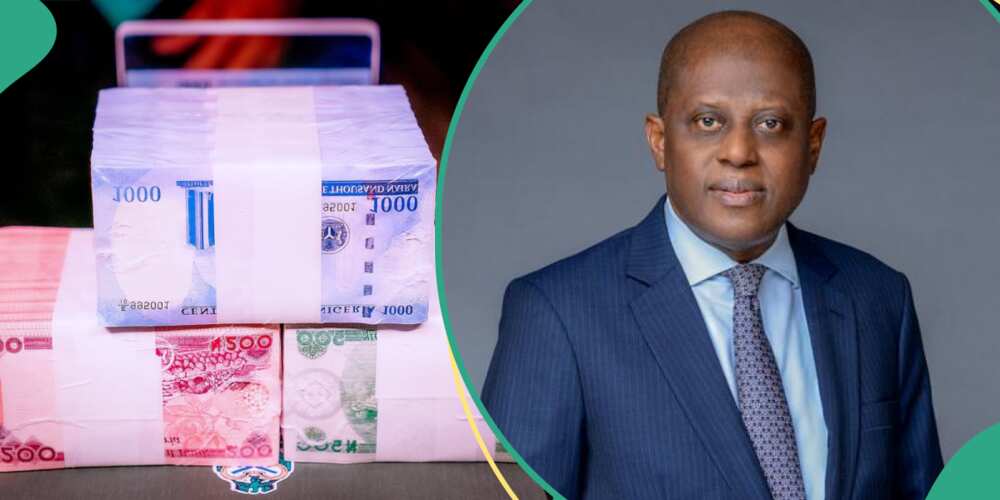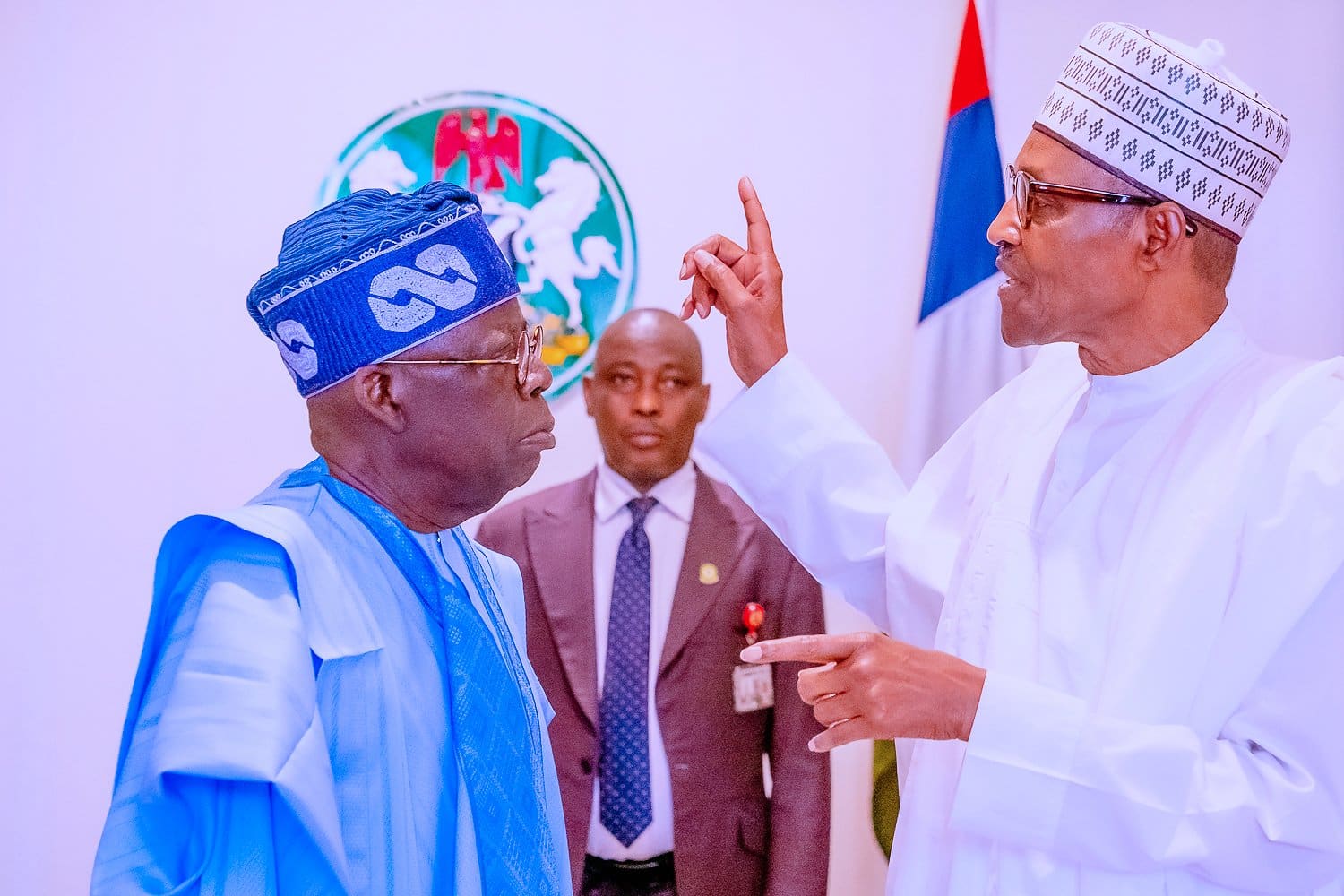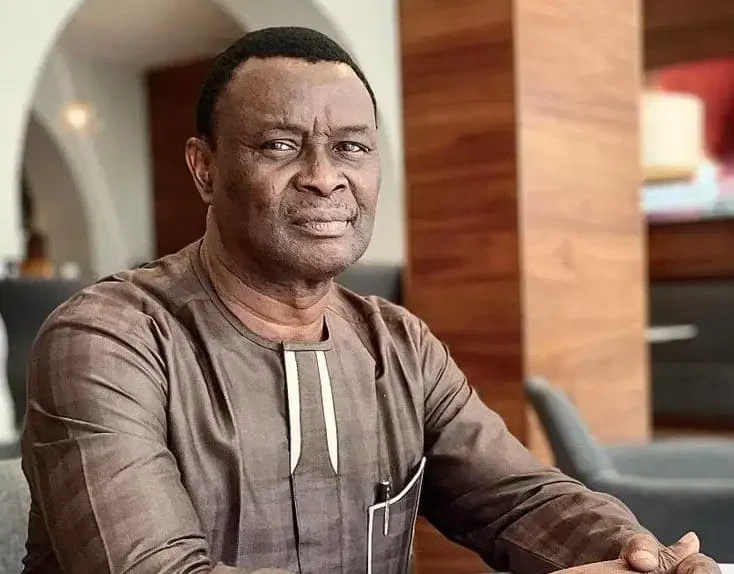- In less than six months of trading, the official foreign exchange market's forex turnover surged to $23.29 billion
- The value of the naira against the US dollar varied from N980 to N1,500 between January and June
- The stability of the naira is ascribed to low demand and increased dollar inflows, which have reinforced the foreign reserves
Legit.ng journalist Zainab Iwayemi has over 3-year-experience covering the Economy, Technology, and Capital Market.
Following a flurry of reforms by the Central Bank of Nigeria, forex turnover at the official foreign currency market soared to $23.29bn within over six months of trade, according to data collated.
 Between January and June, the value of the naira in relation to the US dollar fluctuated between N980 and N1,500. Photo Credit: Naira, CBN
Between January and June, the value of the naira in relation to the US dollar fluctuated between N980 and N1,500. Photo Credit: Naira, CBNSource: Getty Images
Between January and June, the value of the naira in relation to the US dollar fluctuated between N980 and N1,500.
At the end of trading on Friday, the naira was valued at N1,485 versus the US dollar.
PAY ATTENTION: Share your outstanding story with our editors! Please reach us through info@corp.legit.ng!
According to an analysis of reports and data on daily foreign exchange transactions recorded on the website of FMDQ Securities, a platform that disseminates official foreign exchange trading in the nation, the amount increased by 15%, or $0.6 billion, through the Nigerian Autonomous Foreign Exchange by Deposit Money Banks between January and June 21st.
The principal currency vendors at NAFEM are commercial banks, the CBN, and foreign oil companies.
Dollar sold from January
A detailed analysis of the dollar supply revealed that the forex market had a $4 billion turnover in January and grew by $3.3 billion in the two weeks that followed the introduction of a new rule that required banks to sell any surplus dollar stock they had within 24 hours in order to promote liquidity in the FX market.
The supply steadied in the ensuing weeks, reaching $890.65 million between February 19 and February 23. This inflow grew to $953.02 million for the week of February 26–March 1.
According to data gathered from the FMDQ Security Exchange, a $4.7 billion deal was sold in March, which indicates that market liquidity has increased.
But FX sales fell by 51% month over month to $2.5 billion, which was in line with the naira's recorded devaluation in April.
Nigeria's currency depreciated at the end of May, even with a $4.60 billion increase in dollar supply in the official foreign exchange market.
In June, trading activity resulted in $2.29 billion worth of currency trading between eager buyers and sellers over the course of 12 days.
How the CBN helped the naira stabilise
Many of the CBN's current measures have been credited with increasing liquidity in the forex market.
Unification of exchange rate windows, liberalisation of the foreign exchange market, elimination of banks' and airlines' FX backlog obligations, establishment of a Price Verification System, limitations on banks' Net Open Position, elimination of the daily cap of N2 billion on remunerable Standing Deposit Facility, and reorganisation of the Bureau De Change division are some of the major reforms.
The apex bank prioritised incidents of excessive foreign currency speculation and hoarding by Nigerian banks and addressed these issues on the official market.
A full clearing of the valid foreign exchange backlog was also declared by the apex bank.
The naira, the currency of Nigeria, has been relatively stable over the past month, trading in the official foreign exchange market between N1,476 and N1,485 against the US dollar. However, sustainability is still a cause for concern.
Low demand and higher dollar inflows have been attributed to the naira's stability, as they have strengthened the country's foreign reserves.
Analysts predict good rate for naira
Legit.ng reported that financial analysts said the naira could see a boost beginning this week, given the federal government's plan to utilise the $2.25 billion World Bank loan granted to Nigeria.
The $2.25 billion loan is primarily intended to help Nigeria implement economic reforms that have led to the biggest cost-of-living crisis in a long time by bolstering revenue.
The first project, expected to receive $1.5 billion, is the Nigeria Reforms for Economic Stabilization to Enable Transformation (RESET) Development Policy Financing.
Source: Legit.ng
















 English (US) ·
English (US) ·